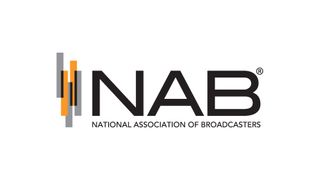NAB's Smith to DOJ: Consent Decrees Are Vital
Tells Justice modifications can have unintended consequences

National Association of Broadcasters president Gordon Smith defended music licensing consent decrees Tuesday (July 28) at a Department of Justice workshop on competition the performance rights licensing regime.
He said that the decrees must remain in place, and in their current form. "Changing or eliminating sections or paragraphs or sentences…or even words in the decrees can have harmful and unintended consequences," he said, and would require public input on any proposed changes in any event.
Justice a year ago launched its latest review of the 75-year-old consent decrees with The American Society of Composers, Authors and Publishers (ASCAP) and Broadcast Music, Inc. (BMI), which collectively handle music licensing and fees for music on video and audio platforms.
The decrees circumscribe how those organizations can provide rights to public performances, but Justice, as it had earlier signaled, is reviewing those agreements to see if they should be maintained as is, terminated or modified (as the 1941 decrees have been before, ASCAP most recently in 2001 and BMI in 1994.
The decrees "require ASCAP and BMI to issue licenses covering all works in their repertory upon request from music users. If the parties are unable to agree on an appropriate price for a license, the decrees provide for a “rate court” proceeding in front of a U.S. district judge."
Broadcasters said a blanket license regime, rather than one where they would have to identify and get rights to each piece of music they play, is the only workable approach, a point Smith made in his testimony.
Smith said Justice needs to resolve the fractional licensing issue, in which a court, mistakenly in NAB's assessment, ruled that the consent decrees do not require full-work licensing.
Broadcasting & Cable Newsletter
The smarter way to stay on top of broadcasting and cable industry. Sign up below
As to the impact of phasing out the blanket license consent decrees, as BMI and ASCAP would prefer, Smith said the impact on television could be severe penalties for copyright infringement.
"Each day, TV stations have music interspersed throughout their programming," he said. "Much of those musical performances occur in the background of stations’ movies, television shows, live sporting events, local news and commercials. Stations have no editorial control for much of their content, such as network and syndicated programming, live events and commercials. So, if a station lacked the right to publicly perform a single musical work because it was in a repertory it did not license, it would have no practical ability to mitigate the risk that an offending song might air. This would expose the station to the threat of significant penalties under federal copyright law."
Smith said that beyond rate issues, NAB opposes allowing so-called selective withdrawals. "As television and radio broadcasters continue to innovate in the digital space to better serve our audiences, any modification to the decrees that would enable rights holders to selectively withdraw from ASCAP and BMI to leverage their market power in direct negotiations with digital services would raise these same anticompetitive concerns," he said.
Contributing editor John Eggerton has been an editor and/or writer on media regulation, legislation and policy for over four decades, including covering the FCC, FTC, Congress, the major media trade associations, and the federal courts. In addition to Multichannel News and Broadcasting + Cable, his work has appeared in Radio World, TV Technology, TV Fax, This Week in Consumer Electronics, Variety and the Encyclopedia Britannica.

